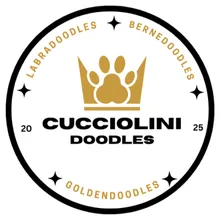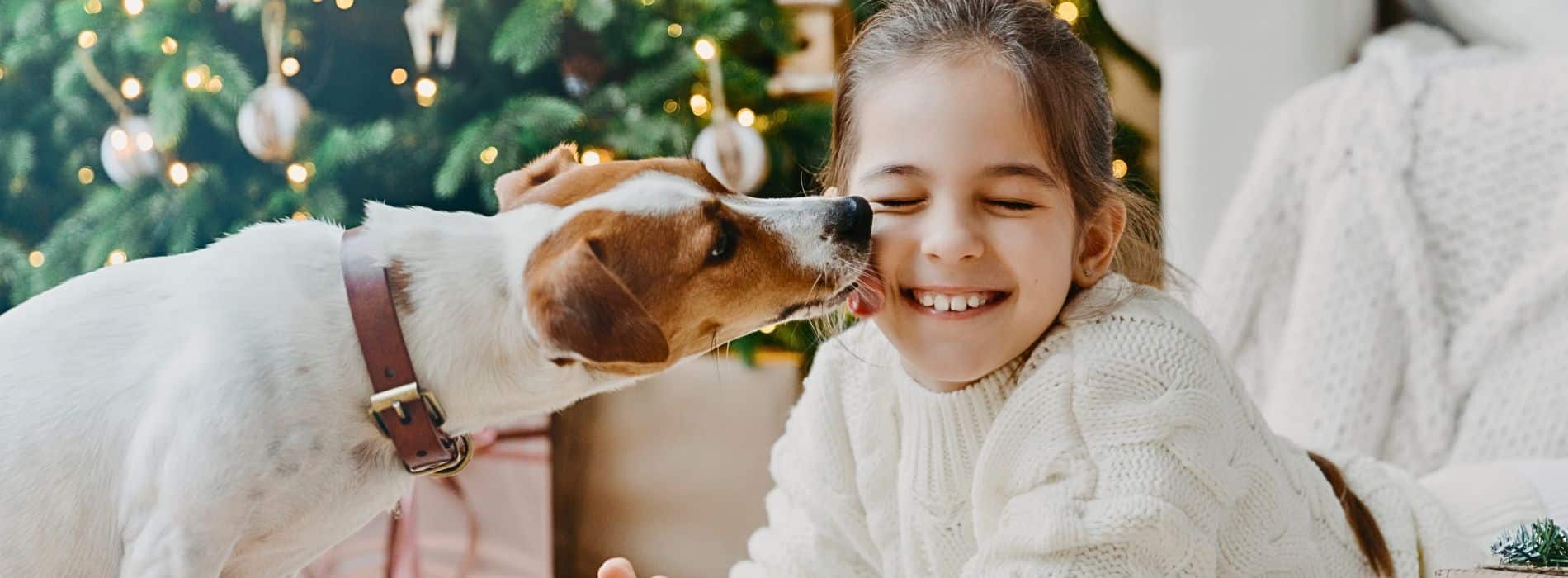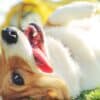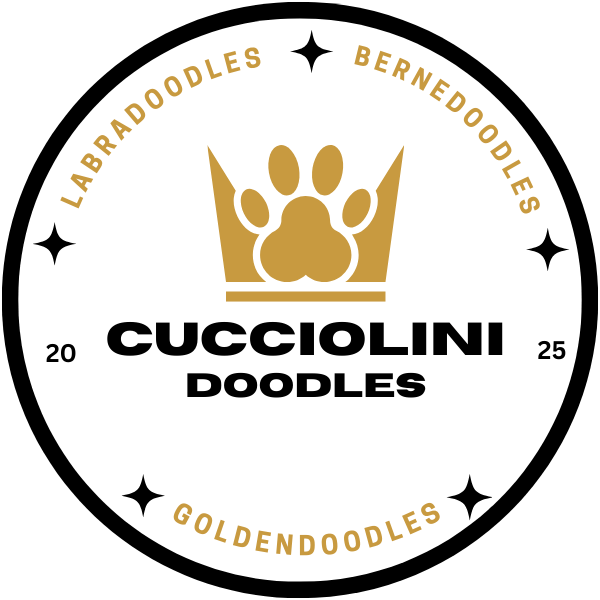Learn more about dog-licking behaviour and what your dog tries to tell you.
Licking is a typical behaviour in dogs and can signify affection or stress. Understanding the underlying causes of your dog’s licking behaviour is essential to determine whether it is desirable or undesirable.
This article will discuss the various signs and symptoms that indicate whether your dog’s licking is desirable or undesirable and how to address unwanted licking behaviour.
Obsessive self-licking
If your furry friend excessively licks themselves, you, or objects to the point where it appears to be a self-stimulatory behavior, it could indicate anxiety, boredom, or pain. Obsessive self-licking can also indicate allergies or other health problems.
Mom Licking Puppy From Birth and What is the Meaning Behind Your Dog’s Licking Behavior?
Puppies learn to lick at a young age, primarily from the mother, who uses it to groom them and show love. Additionally, licking can provide puppies with the stimulation they need for their bodily functions to work correctly.
Just like toddlers explore the world around them by putting objects in their mouths, puppies use their tongues to gain knowledge. It comes from the mother, who teaches them how to interact with their environment.
Behaviour
Recent research has indicated that puppies may ask for food when licking their mother’s face. As an act of politeness, they often seek regurgitated food from their mum. This behaviour may be why our furry friends often lick people’s faces.
Clues of Dog Submission
What is the Meaning Behind Your Dog’s Licking Behaviour? Dogs show their submission and loyalty to the pack’s alpha dog by offering them a lick as a gesture of respect.
Pedigree says it is normal for adult dogs to display seemingly submissive behaviour such as licking. During this act, they tend to lower their body and look up as a sign of deference or respect towards a dominant pack member. The dog receiving the face licks stands up to accept the gesture, but that’s about it. It doesn’t return the favour.”
You are likely the “leader of the pack” in your home, regardless of whether you and your furry friend have different habits. Your pup might be licking your face as a sign of respect and recognition that you are in charge.
Do dogs like the smell of sweat?

Recent research has revealed that dogs can detect subtle changes in the scent and breath of humans, allowing them to distinguish between those who are relaxed and those who are under stress. It’s a remarkable ability used to train service dogs to recognize better and respond to the needs of their handlers. It’s to inform training programs for service dogs, giving them the necessary skills to assist people in various situations.
Clammy Skin
Stress can impact us physically in many ways – an increased heart rate, clammy skin and a shift in the balance of hormones and chemicals secreted from sweat glands or salivary glands.
Dogs have an innate instinct to keep themselves as clean as possible, so they often lick themselves or other canines. This same behaviour is extended to their owners, sometimes including cleaning their ears.
Dogs lick people as a form of greeting.

It’s almost like a celebration when you get home, and your dog jumps up to greet you. Dogs love reuniting with their family and always express their joy.
Dogs are known for unconditional love and loyalty, so it’s not surprising that dogs often reciprocate our affection with licks. Dog licks signify respect and connection between humans and their canine companions. They’re the equivalent of handshakes or waves; when a dog licks you, they say “hello” in their particular way. Licking is also a way for dogs to show that they care about us, as it releases endorphins and creates a feeling of contentment in humans and dogs.
Dogs are Expressive
Even the most well-trained canine may need help understanding that shaking hands is an appropriate greeting. Dogs are expressive animals and prefer to show excitement by showering you with wet kisses and affectionate licks. It’s important to remember that while teaching our furry friends tricks is fun, they naturally want to express their love in the way they know best – with lots of licking!
What is the Meaning Behind Your Dog’s Licking Behavior? Dog Boredom.
It’s natural for your dog to lick herself or overeat if s/he feels bored or anxious. Licking releases hormones that help with relaxation, like dopamine and endorphins. It might indicate separation anxiety if the puppy licks you when you’re not around. It could mean boredom if you’re out of sight while licking or biting.
Dogs show affection when they lick
Excessive licking is likely an affectionate way for your dog to show you they love you. He might be picking up on your behavioural cues and exhibiting these behaviours to calm or soothe you!
A dog seeking attention
Knowing that dogs may lick you as a form of communication is essential. If a dog is licking you when you first come home, it might be a way they say hello. It’s also worth knowing that dogs sometimes lick us if we ignore them or feel like no one cares.
Dog Lick as Habit
Some dogs find it difficult to break their licking habits. In these cases, you can redirect attention to something else when the dog licks.
Dogs like to taste.
Is your dog licking you for nutritional purposes, or could it just be that she’s a big fan of yours? It is also worth looking at connections, such as if she licks you after spending time in the kitchen or going on long walks with her.
Dogs will lick for food.
Dogs show they’re hungry the same way they might in the wild. Research shows that dogs can predict when their mom is coming back, and you can teach your pup another cue – like a specific behaviour or sound.
What is the Meaning Behind Your Dog’s Licking Behaviour? Are there medical reasons why dogs lick?

Allergies to Foods
It can be challenging to determine what is causing your dog to lick itself constantly; however, there are a few things to consider. It may be that your pet has food allergies or suffers from something else, like ear or skin infections. If this is the same as the food trial, you should schedule an appointment with your veterinarian while trying a prescription diet for allergies.
Pain
If there are no signs of skin infection or allergies, vets will consider arthritis, pain, and wounds as reasons for over-grooming and licking. Scratching gives a pleasurable sensation that can provide relief from intense physical discomfort.
Nausea
If your dog smells salty, it might be nauseous. Your pet may act oddly, drooling, vomiting, or other symptoms like lip-smacking and stomach noises.
A dog might have vomited due to digestive tract inflammation, an infection, parasites, toxicities, diet changes, or sensitivity.
See emergency care if your pet is lethargic and cannot contain food or water.
Skin Conditions
If the dog’s hair is tangled and matted, or its skin becomes moist and icky, this could result from an underlying issue that needs addressing. Itching can indicate that scratching has broken the skin, so it needs treatment.
Parasites
Mites can cause irritation and discomfort to animals and humans. If your pet reacts to flea or mite bites, you may have an allergic reaction that is challenging to diagnose by sight alone. That will cause a dog to lick aggressively and scratch.
Common Types of Dog Infections
There are many types of infections in dogs, but one of the most common is yeast infections. These infections can cause a red to brown discharge from the ear and itchy ears, or they may cause a foul smell seen when the dog rolls over on its side. The infection will cause excessive itchiness.
Allergies
Unfortunately, it is quite possible that your dog could be allergic to something they eat. Dogs’ most common causes of itchiness are environmental allergies like dust or odour sensitivities and food allergies. Dogs with allergies may lick, chew, or scratch, or they might even have problems related to the digestive system.
5 Tips on How to train & manage your Dog’s Licking

Training and managing your dog’s nipping and licking habits can be challenging for any pet owner. However, with the right approach, you can help your pup learn to control these behaviours and become a better-behaved dog.
Here are five tips for training and managing your pup’s nipping and licking habits. With patience, consistency, positive reinforcement, and plenty of treats, you can help your puppy learn to control these behaviours quickly!
Be Confident
The way to stop your puppy from nipping and licking at you is to stand firm and let them know that you are the alpha of your pack. If your puppy feels they need to defend themselves, they will find a different, less risky option.
Consistency
The best way for your pup to learn is to show them what you want and reward them. If you show the behaviour often, they will eventually learn to behave appropriately. Give your dog many opportunities for success, and avoid mistakes!
Training and Patience
The most important thing to do is be patient with your dog. A puppy may have learned this behaviour since birth, knowing limits and safe behaviours. You can stop bad habits in their training by rewarding good ones often enough!
Positive Reinforcement
Positive reinforcement training has a much higher chance of success. For example, if your dog jumps up on the couch, give it a treat for coming down and setting the sofa. Do this often enough, and your pup will quickly learn that it can earn “treats” from you by doing what you ask!
Reward-Based Training
This training method is for those who need help training their dog positively or who don’t want to use positive reinforcement because it has had no success with them. With reward-based training, you will give your dog a treat when they do what you ask and when they do something that you don’t want them to do.
Conclusion: What is the Meaning Behind Your Dog’s Licking Behaviour?
A dog’s saliva is a natural disinfectant that kills harmful bacteria and viruses, like salmonella and E.coli. It means that when dogs lick their fur or other surfaces, they keep themselves clean and healthy while protecting others from getting sick.
Dogs also use their tongues to check if someone else has been drinking alcohol or using drugs because dogs can smell these chemicals in humans’ sweat and breath. Dogs can help people avoid these potentially dangerous situations by sniffing out alcohol or drugs before they have an accident.




